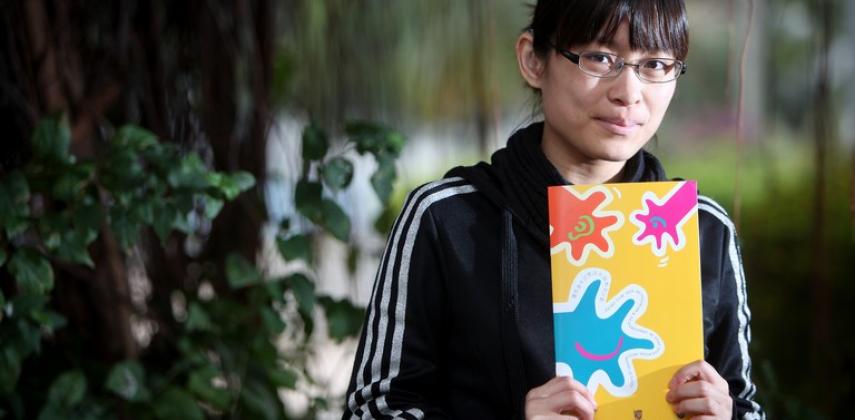Despite the unfortunate incident, Tang's mother would not allow her to waste away. After countless hours of practice in front of a mirror, Tang was able to "listen" by reading lips and to speak like a normal person.
Unlike most hearing-impaired Hongkongers who could hardly make it past high school, Tang did not allow her disability to disrupt her studies. She is currently doing her master's degree in linguistics at the Chinese University of Hong Kong (CUHK) and is the chairman of
How did you overcome your disability?
I was very lucky to attend a newly established primary school.
I spent six years with the same teachers and classmates and they were very willing to take care of me. I always got to sit in front so that I could "listen" by watching the teacher's lips. But things were not as smooth when I attended secondary school. The people there were less willing to attend to my needs so my family took me to Canada. The educational support for the deaf in Canada is much better than in Hong Kong. There were captionists who helped deaf students take notes, government subsidies for hearing aid and a special teacher for the deaf. The education I received there was more or less similar to what a normal person would get.
In 2007, I graduated from the University of Victoria, major in visual arts, then I returned to Hong Kong in hopes of finding employment as a graphic designer.
What were the challenges you encountered in job hunting?
I was well aware that employers discriminated against the deaf. They often asked: "How are you supposed to answer the phone?"
But I didn't think it was such a big problem. People now communicate through emails and colleagues can pick up the phone. Finally, I landed a job at a golf product company. I showed my boss that my passion for graphic design was greater than my disability.
How did you become the chairman of Silence?
Lillian Li, one of the founders of
What is Silence's mission?
I would like to empower the deaf through the use of sign language and through equal employment.
How does your CUHK research help the deaf?
I am currently doing research work for Jockey Club sign bilingualism and co-enrolment in deaf education programme in the Centre for Sign Linguistic and Deaf Studies at CUHK. I conduct workshops for teachers under the deaf education programme to train them to work with deaf students in mainstream schools. I also visit deaf students in their school every week to help them with difficult subjects.
What is your motto in life?
I always tell myself not to compare and not to lose my self-confidence even when I am going through a lot.
Any words of encouragement?
It is completely fine to recognise your weaknesses. Think positive. Knowing your weaknesses can make you aspire to be better. It's never too late to realise your dream.


